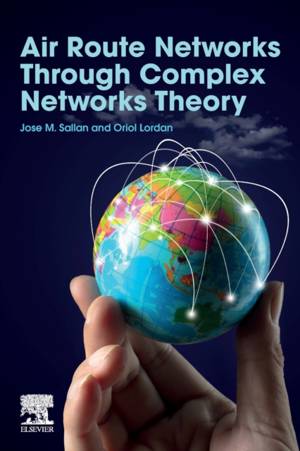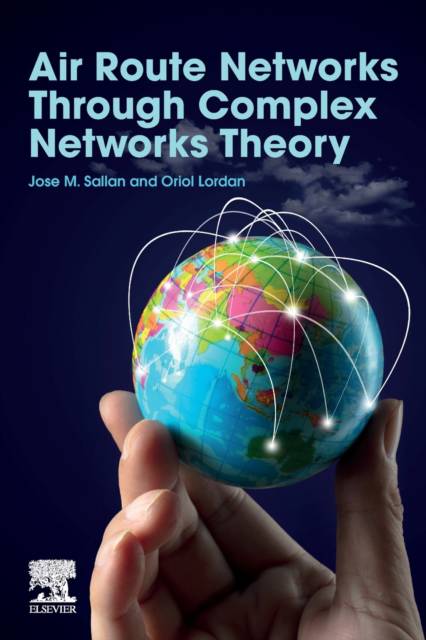
- Retrait gratuit dans votre magasin Club
- 7.000.000 titres dans notre catalogue
- Payer en toute sécurité
- Toujours un magasin près de chez vous
- Retrait gratuit dans votre magasin Club
- 7.000.0000 titres dans notre catalogue
- Payer en toute sécurité
- Toujours un magasin près de chez vous
Air Route Networks Through Complex Networks Theory
Jose M Sallan, Oriol LordanDescription
Air Route Networks through Complex Networks Theory connects theory research with network connectivity analysis, providing practitioners with the tools they need to develop more efficient, resilient and profitable air route networks. The book helps airline route planners and executives create more robust route networks that are less vulnerable to disruptions, such as node isolation. The book further explores errors and attacks in complex networks, strategies for detecting critical nodes and cascading failure models to assess and maximize robustness. The book explains how to measure air route network connectivity with complex network representations.
Air transport is among the most dynamic and toughest competition industries in today's global economy. The quality of air route network design is a key strategic factor in an airline's viability. These robust networks provide for more stable and secure carrier operations vs. those based simply on existing supply and demand volumes.
Node-specific and network-specific representations are covered, along with in-depth coverage of connectivity in special and temporal networks. These collective tools serve as a guide for practitioners seeking to apply complex network theory to the airline industry.
Spécifications
Parties prenantes
- Auteur(s) :
- Editeur:
Contenu
- Nombre de pages :
- 252
- Langue:
- Anglais
Caractéristiques
- EAN:
- 9780128126653
- Date de parution :
- 07-11-19
- Format:
- Livre broché
- Format numérique:
- Trade paperback (VS)
- Dimensions :
- 152 mm x 229 mm
- Poids :
- 340 g

Les avis
Nous publions uniquement les avis qui respectent les conditions requises. Consultez nos conditions pour les avis.






